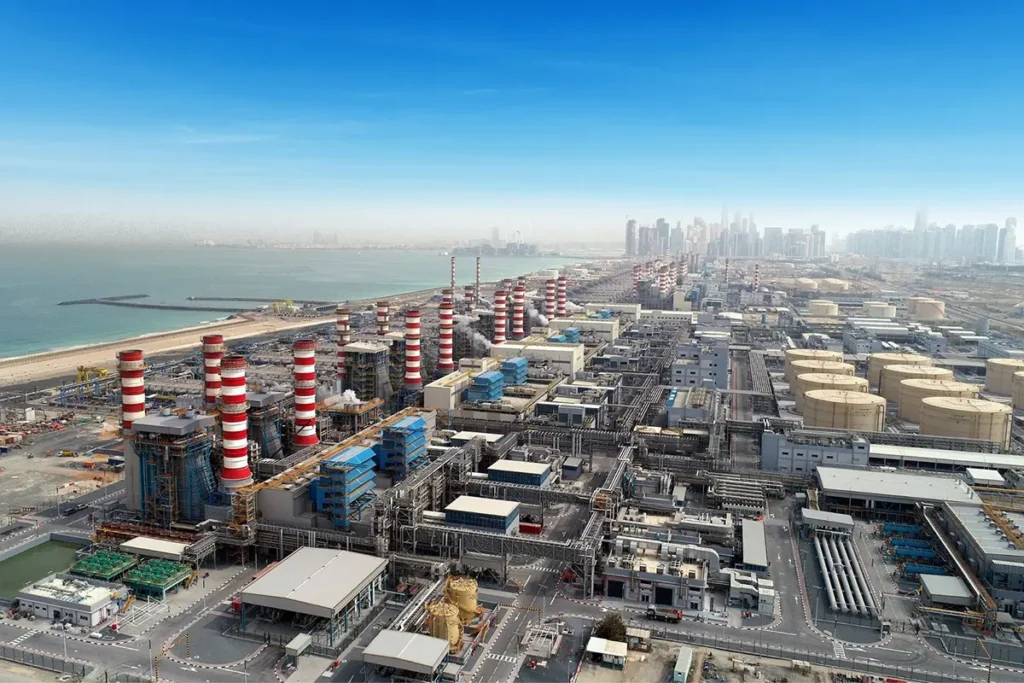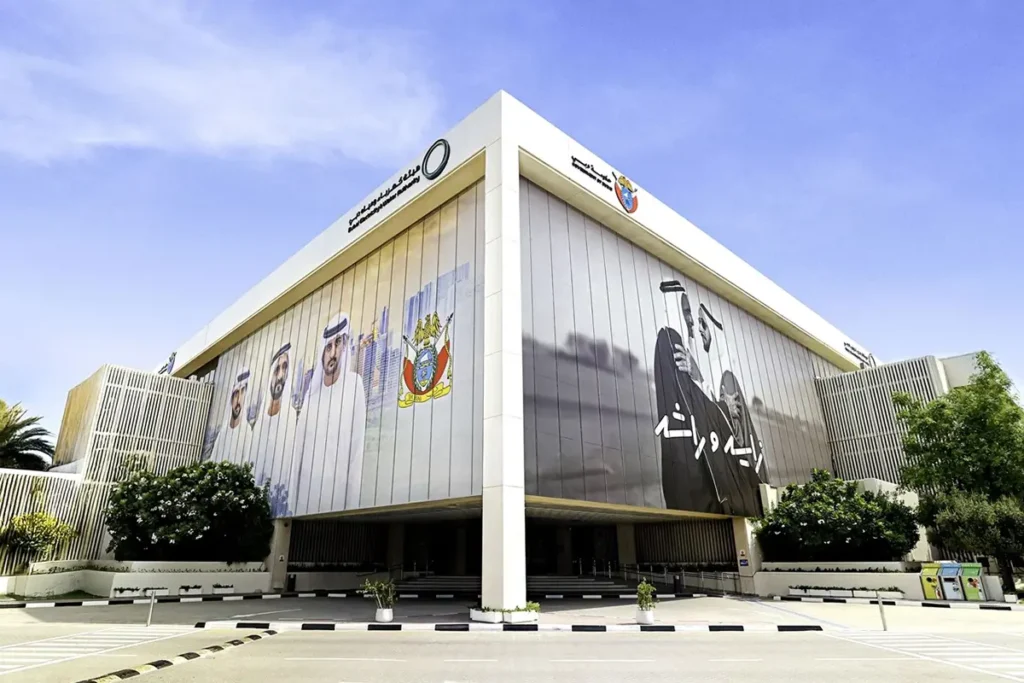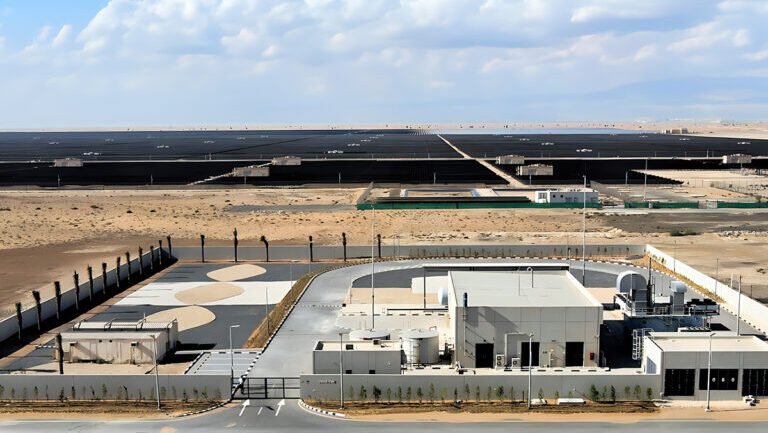Dubai Electricity and Water Authority (DEWA) has reached a remarkable milestone with its Green Hydrogen Project, producing over 100 tonnes of green hydrogen since its launch in May 2021. This achievement highlights Dubai’s leadership in sustainable energy and demonstrates the city’s commitment to a clean, low-carbon future. The project represents a critical step forward in the UAE’s efforts to diversify its energy sources and reduce carbon emissions while meeting the growing demand for clean energy.
The milestone not only reflects DEWA’s technical capabilities but also reinforces Dubai’s position as a hub for innovation in the energy sector. By successfully producing significant volumes of green hydrogen, Dubai is paving the way for future industrial applications, renewable-powered transportation solutions, and sustainable power generation.
What Is Green Hydrogen?
Green hydrogen is a form of hydrogen gas produced by splitting water into hydrogen and oxygen through a process called electrolysis. What makes it “green” is the use of renewable energy sources such as solar or wind to power the electrolysis process, ensuring that no carbon dioxide is emitted.

Unlike grey hydrogen, which is derived from natural gas and releases greenhouse gases, or blue hydrogen, which captures some carbon emissions, green hydrogen is entirely clean. This makes it an essential component of global strategies to reduce emissions, combat climate change, and achieve net-zero targets.
Green hydrogen can be stored and transported, providing a versatile energy source that can be used in electricity generation, transportation, and industrial processes. Its flexibility and low environmental impact make it a key solution for countries aiming to transition to a sustainable energy future.

The Genesis of DEWA’s Green Hydrogen Project
The DEWA Green Hydrogen Project was officially launched in May 2021 as part of Dubai’s broader strategy to become a global leader in renewable energy and sustainable technologies. The project was designed to leverage the city’s abundant solar energy resources, integrating them into a cutting-edge facility capable of producing hydrogen in a clean, efficient, and scalable manner.
The facility is located at the Mohammed bin Rashid Al Maktoum Solar Park, the largest single-site solar park in the world. This location allows the project to harness consistent solar power throughout the year, making it a reliable source of renewable energy for hydrogen production.
The initial design of the project allows it to produce approximately 20 kilograms of hydrogen per hour. Storage tanks at the facility can hold up to 12 hours of hydrogen production, ensuring that energy is available even during nighttime or periods of low solar activity. This flexibility demonstrates the practical potential of green hydrogen as a reliable and scalable energy source.
Achieving the 100 Tonnes Milestone
As of August 2025, the DEWA Green Hydrogen Project has successfully produced over 100 tonnes of green hydrogen. This milestone is particularly significant because it represents both the technical feasibility and operational maturity of the project.
The hydrogen produced has been used to generate more than 1.15 gigawatt hours (GWh) of clean electricity through hydrogen gas engines. This energy generation has resulted in a reduction of over 515 tonnes of carbon dioxide emissions, directly contributing to Dubai’s environmental goals.
Additionally, the project supplied more than 11 tonnes of green hydrogen for hydrogen-powered vehicles and industrial applications, showcasing the versatility of hydrogen in supporting transportation and manufacturing sectors. By providing clean fuel for vehicles, the project helps reduce dependence on fossil fuels and improves air quality in urban areas.

Strategic Alignment with UAE’s Sustainability Goals
The DEWA Green Hydrogen Project is closely aligned with multiple national and regional sustainability initiatives. These initiatives reflect the UAE’s commitment to environmental responsibility, energy security, and technological innovation.
- National Hydrogen Strategy: Aims to position the UAE as a global leader in low-emission hydrogen production by 2031. The DEWA project is a cornerstone of this strategy, demonstrating practical applications and scalability.
- Net Zero 2050 Strategy: Targets achieving net-zero carbon emissions by 2050. By generating clean electricity and reducing CO₂ emissions, the project contributes directly to this ambitious national goal.
- Dubai Clean Energy Strategy 2050: Seeks to provide 100% of Dubai’s energy from clean sources by 2050. The project represents a concrete example of renewable energy deployment in the city.
- Dubai Net Zero Carbon Emissions Strategy 2050: Focuses on reducing carbon emissions across all sectors, including power generation, transportation, and industrial activity.
- Dubai Green Mobility Strategy 2030: Encourages the adoption of sustainable transportation solutions. Hydrogen-powered vehicles fueled by DEWA’s green hydrogen exemplify this vision.
Together, these strategies reflect Dubai’s integrated approach to sustainability, combining renewable energy production, technological innovation, and carbon reduction efforts to achieve a greener future.
Technological Innovations Behind the Project
The DEWA Green Hydrogen Project incorporates advanced technologies to ensure efficient and scalable production. Key innovations include:
- Electrolysis Powered by Solar Energy: The project uses state-of-the-art electrolysers powered entirely by solar energy, ensuring zero emissions during hydrogen production.
- Advanced Storage Systems: The hydrogen produced is stored in highly secure tanks capable of holding production for up to 12 hours, making it available on demand for electricity generation or industrial use.
- Hydrogen Gas Engines: These engines convert stored hydrogen into electricity, providing a stable and clean power supply even when solar production is low.
- Scalable Infrastructure: The facility is designed with expansion in mind, allowing future increases in hydrogen production as demand grows.
These innovations position DEWA’s project as a model for other clean energy initiatives in the region and globally. The technologies used demonstrate the feasibility of large-scale green hydrogen production in a desert climate, where solar energy is abundant.
Future Applications of Green Hydrogen
The potential applications of green hydrogen are vast, and DEWA’s project is a testbed for many of them:
- Clean Power Generation: Hydrogen can be used in gas turbines or fuel cells to produce electricity, reducing reliance on fossil fuels.
- Transportation: Hydrogen-powered vehicles, including buses, trucks, and even marine vessels, can benefit from the fuel produced by the project.
- Industrial Use: Hydrogen is a key feedstock in industries such as steel manufacturing, chemical production, and refining. Using green hydrogen reduces carbon emissions in these sectors.
- Energy Storage: Green hydrogen acts as a form of chemical energy storage, allowing excess solar power to be converted and stored for later use.
By exploring these applications, Dubai can accelerate its transition to a fully sustainable energy ecosystem, demonstrating the economic and environmental benefits of green hydrogen.
DEWA’s Vision and Global Leadership
DEWA’s Green Hydrogen Project is more than a technical achievement; it reflects Dubai’s strategic vision to lead in renewable energy innovation. By investing in green hydrogen, Dubai is building a platform for long-term energy security, economic growth, and environmental sustainability.
The project also contributes to Dubai’s international standing as a hub for clean energy research, development, and deployment. By showcasing successful large-scale hydrogen production, the city attracts global interest from technology providers, investors, and policymakers seeking sustainable solutions.

Economic and Environmental Benefits
The DEWA Green Hydrogen Project generates both economic and environmental advantages:
- Economic Benefits: By creating opportunities in hydrogen production, storage, and applications, the project supports new industries, job creation, and technological development.
- Environmental Benefits: Reduced reliance on fossil fuels, lower carbon emissions, and improved air quality contribute to a healthier urban environment.
- Energy Security: Producing hydrogen locally ensures a stable supply of clean energy for power generation and industrial use.
These benefits demonstrate that investing in green hydrogen is not only environmentally responsible but also economically strategic.
Challenges and Lessons Learned
While the project has been highly successful, developing green hydrogen technology comes with challenges:
- High Initial Costs: Setting up electrolysis systems and storage infrastructure requires significant investment.
- Energy Efficiency: Electrolysis consumes a substantial amount of electricity, which must be sourced from renewable generation to remain carbon-free.
- Technical Expertise: Operating and maintaining hydrogen production facilities requires specialized knowledge and training.
DEWA has overcome these challenges through careful planning, international collaboration, and continuous innovation. The lessons learned from this project will inform future large-scale hydrogen projects in the UAE and beyond.
Conclusion
The DEWA Green Hydrogen Project, with over 100 tonnes of hydrogen produced since 2021, represents a major milestone in Dubai’s clean energy journey. It demonstrates the city’s ability to combine innovative technology, strategic vision, and sustainability objectives into a successful, large-scale project.
This achievement reflects Dubai’s commitment to achieving net-zero emissions, supporting renewable energy adoption, and fostering technological innovation. The project sets a benchmark for future hydrogen applications in energy generation, transportation, and industrial processes.
As Dubai continues to lead in renewable energy development, the Green Hydrogen Project serves as a model for cities worldwide, showcasing the potential of clean hydrogen to transform energy systems and promote sustainable growth.
With continued investment, research, and deployment, green hydrogen is poised to become a cornerstone of Dubai’s energy future, supporting a low-carbon economy while driving global innovation in clean energy technologies.
Do follow UAE Stories on Instagram
Read Next – Marhaba Launches Meet & Greet Services at Manchester Airport














